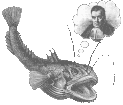UW Aquatic & Fishery Sciences Quantitative Seminar
Anna Chrysafi
PhD student, Aquatic Sciences, University of Helsinki, Finland
Eliciting expert judgments to inform the depletion prior in data-poor stock assessment
Abstract
Modern stock-assessment models are characterized by a very complex nature and require long time-series of fishery dependent and independent data. Unfortunately, the majority of exploited stocks are lacking the data and the funds needed for conventional assessment tools. In recent years, research in developing assessment methods for data-poor stocks has increased and many tools have emerged thereafter. Data-poor methods rely on many assumptions and accommodate for the lack of information in the form of priors. In many instances, knowledge about stock depletion is required as model input, information that is uncertain even for data-rich stocks. Performance evaluations of these methods have shown that they are very sensitive in misspecification of depletion and lead to over- or under-estimation of harvest limits. Here we try to imitate a real case of data-poor stock assessment, where the expert behind the assessment must make decisions based on the available information. We assume that for a data-poor fishery the only available information is catches and fishery length composition and try to explore the following questions: How experts, with different levels of experience in stock-assessment, perceive the same data in order to provide a prior for stock depletion? How do experts update their depletion prior with new information? How does expert judgment compare to empirical formulas for informing the depletion prior? How do data-poor methods perform under expert judgment vs empirical formulas? How do data-poor methods perform relative to the “best available science”?

